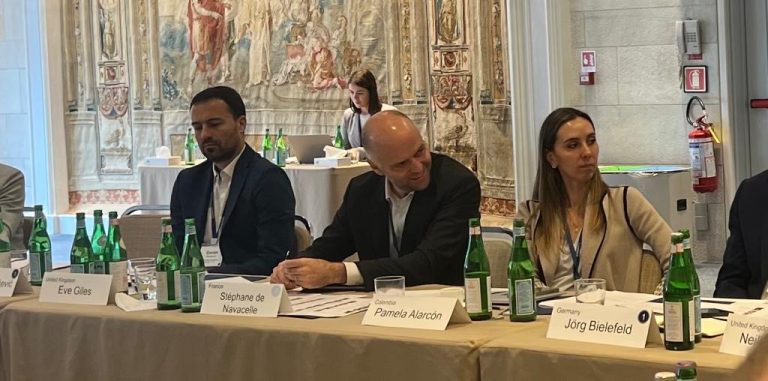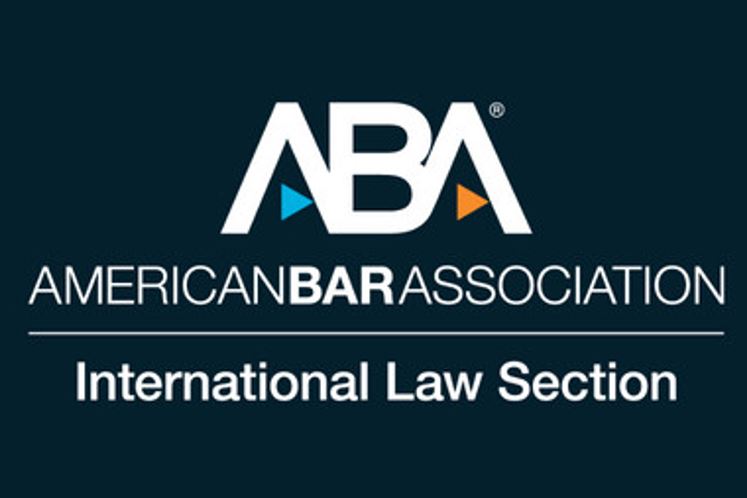I. Can allegations of corruption serve as a bar to jurisdiction of arbitral tribunals or admissibility of claims?
Under U.S. law, including the Federal Arbitration Act (9. U.S.C. 1 et seq.) and the Uniform Arbitration Act of 1955 (“UAA”) (adopted by 49 states within the United States), parties are free to contract and agree to arbitrate all disputes arising out of or related to their agreement. Whether a dispute falls within the scope of any written arbitration agreement is a question solely for the arbitrators to determine. Much like the international principle of compétence-compétence, U.S. law gives broad authority to arbitration tribunals to determine their own jurisdiction and the scope of any claims placed at issue. Courts will enforce agreements to arbitrate, and parties will routinely be forced to arbitrate rather than litigate claims in the court system.
Allegations of corruption, generally, will not bar a tribunal’s jurisdiction or admissibility under U.S. law because of the liberal federal policy favoring arbitration and giving deference to the parties’ contractual rights and intent. See Moses H. Cone Memorial Hospital v. Mercury Constr. Corp., 460 U.S. 1, 24 (1983).
Generally, civil claims or defenses such as claims of fraud, civil theft, conversion, unjust enrichment, civil conspiracy, and fraud in the inducement of procuring the underlying contract all fall within the purview of the arbitrators’ review and determination of whether such claims or defenses are within the scope of the parties’ arbitration agreement.
II. Can allegations of corruption affect the validity of an arbitral award?
Generally, an allegation of corruption will not provide a sufficient basis to challenge or vacate an arbitration award. The Federal Arbitration Act provides only four narrow grounds for vacating an arbitration award: (1) where the award was procured by corruption, fraud or undue means; (2) where there was evident partiality or corruption in the arbitrators; (3) where the arbitrators were guilty of misconduct in refusing to postpone the hearing, refusing to hear evidence pertinent and material to the controversy, or any other misbehavior which may prejudice the rights of a party; or (4) where the arbitrators exceeded their powers or so imperfectly executed them that a mutual, final and definite award was not made. 9 U.S.C.
10(a).
The fraud and corruption mentioned in the Federal Arbitration Act is fraud in the arbitration proceeding itself, or corruption or bias of an arbitrator. Other U.S. laws deal more specifically with anti-corruption enforcement and civil liability that may flow from actual corruption, such as the U.S. Foreign Corrupt Practices Act.
Recent federal courts have examined whether allegations of fraud in the underlying conduct of the parties that forms the basis of a claim subject to arbitration (such as alleged corruption in procuring a government contract that contains the agreement to arbitrate) can constitute a basis for vacating an arbitration award under the public policy prong or the New York Convention. Every U.S. federal court that has examined this issue has agreed: a court will not vacate or overturn an arbitration tribunal’s award based on allegations of corruption intertwined with the merits fully litigated before a duly appointed, competent tribunal. See,g., Commodities & Mins. Enter. V. CVG Ferrominera Orinoco, C.A., 2024 U.S. App. LEXIS 19944 (11th Cir. Aug. 8, 2024); Commodities & Mins. Enter. V. CVG Ferrominera Orinoco, C.A., 49 F.4th 802 (2d Cir. 2022); Metro Mun. v. Rutas de Lima S.A.C., 2024 U.S. Dist. LEXIS 42891 (D.C. Dist. Ct. March 12, 2024).
III. In annulment or enforcement proceedings, can the court review the award and the merits to determine whether corruption or related offences affect the underlying dispute?
In the United States, judicial review is limited to the four statutory bases for vacating an award in the Federal Arbitration Act above. The Supreme Court of the United States and all lower courts strictly adhere to the strong statutory and common law principle that courts do not review the merits or the factual determinations made by an arbitration tribunal unless one of the four statutory bases for vacating an award is properly raised. See,g., Hall St. Assocs, L.L.C. v. Mattel, Inc., 552 U.S. 576 (2008).
The New York Convention does provide one other avenue for judicial review, but that avenue is limited to legal and public policy review – not to the merits of the underlying dispute. For example, a court in the United States will not re-examine or review whether a contracting party breached a contract or whether the contract was procured by fraud. Those decisions are considered part of the merits and substantive claims or defenses to be raised and asserted before the arbitration tribunal.
Courts will review awards for a manifest disregard of law, or failure to apply clear legal principles to the facts determined by the arbitrators.
IV. Can courts review corruption allegations which have not been raised in the arbitration?
Generally, U.S. courts will not review allegations of corruption related to the underlying merits where those allegations were not raised in the arbitration. S. law treats judicial review of arbitration awards with extreme deference to the tribunal and courts will not consider new arguments or allegations that a party failed to put before the arbitration tribunal.
The exceptions to this rule relate to corruption or a fraud committed in the arbitration itself, or the discovery of new evidence that clearly and convincingly establishes an underlying fraud or corruption, which was not available to the party or the tribunal during the arbitration, and which could not have been raised or discovered before or during the arbitration. Compare Metro Mun. v. Rutas de Lima S.A.C., 2024 U.S. Dist. LEXIS 42891 (D.C. Dist. Ct. March 12, 2024) with France v. Bernstein, 43 F.3d 367 (3rd Cir. 2022).
V. Do courts defer to the arbitral tribunal’s finding that no corruption acts were committed?
In the United States, courts are extremely deferential to an arbitration tribunal’s findings of fact and to mixed questions of fact and law. A tribunal’s finding that no corrupt acts occurred is generally considered a finding of fact and accorded the highest level of deference by reviewing courts. Such a finding can only be overturned if a party demonstrates clear error or corruption or bias on the part of the tribunal.
VI. Is there a standard of proof used by arbitrators and reviewing courts to assess the existence of corruption?
In arbitration proceedings, U.S. law does not require arbitrators to follow the standard rules for admitting evidence but does require arbitrators to apply the law and other legal standards. In civil arbitration proceedings, the petitioner or claimant has the burden of proving all elements of its claims by a preponderance of the evidence, meaning a fact is more likely true than not. Claims for fraud are subject to a higher burden of proof – clear and convincing evidence.
Reviewing courts generally do not assess allegations of corruption that a party failed to raise in the underlying arbitration. If a party raised corruption allegations, the reviewing court will be extremely deferential to the tribunal’s findings and award.
VII. Which method do arbitrators and reviewing courts employ to establish evidence of corruption?
Arbitrations within the United States generally are private, and the awards and underlying proceedings cannot be analyzed or examined by the public. Where parties challenge an arbitration award and assert claims of corruption, reviewing courts are required to give deference to all facts found by the tribunal. Arbitrators and courts will generally apply a higher standard proof by clear and convincing evidence to allegations or claims related to corruption because they are most closely related to civil fraud.
VIII. Are arbitrators seated in your jurisdiction bound by criminal proceedings on issues that could impact the underlying arbitration dispute?
Similar to the other countries, criminal offenses are not arbitrable in the United States and arbitrators cannot rule on criminal offenses. If a party has been convicted of a criminal offense or pleaded guilty to a criminal offense, that fact is considered res judicata and must be accepted by the tribunal.
Arbitrators can only determine the civil claims and remedies that may flow from criminal conduct. For example, a party convicted of criminal fraud, bribery, or theft may have additional civil liability. Any facts supporting the elements of a crime and found by the fact-finder in the criminal trial or admitted in a plea agreement by the criminal defendant will be res judicata and considered admissions of a party opponent when raised in a related civil arbitration.
IX. To what extent do they rely on or defer to findings from parallel criminal investigations?
Arbitrators in the United States also have discretion to stay a civil arbitration while a criminal investigation or trial is pending. Most arbitrators will defer to the criminal investigation or grant a request to stay the arbitration pending resolution of the criminal case. If the U.S. federal government is investigating a crime related to corruption, particularly corruption involving foreign entities, the U.S. Attorney’s Office may request civil parties to stay their arbitration and may seek a court order to stay an arbitration so as not to interfere with the government’s investigation and to avoid any inconsistent findings. Generally, civil litigants and arbitrators will voluntarily stay private civil arbitrations and allow the government to proceed with criminal cases.
X. Are remedies available when an arbitral tribunal rules that there is no evidence of corruption but subsequently a criminal ruling decides otherwise?
This factual scenario is unlikely to occur in the United States because the U.S. government, enforcing U.S. anti-corruption laws in a criminal context, will have priority. Any criminal case will be decided before any private civil arbitration. If, however, the criminal investigation and prosecution are conducted by a foreign sovereign, it is possible such a ruling post-dates a civil arbitration. In that context, U.S. law recognizes two remedies for amending, vacating or modifying an arbitration award – one under the Federal Arbitration Act and the other under the New York Convention. See GE Energy Power Conversion France SAS, Corp. v. Outokumpu Stainless USA, LLC, 590 U.S. 432, 443 (2020). Under either rubric, a party seeking to vacate an arbitration award would need to demonstrate that evidence establishing the criminal conduct or offense was not available and could not have been available to the party or the tribunal during the arbitration. It is irrelevant that a criminal conviction post-dates an arbitration. The ability to vacate or amend an arbitration award is based on whether a party had access to facts and information that would have put the party on notice of the alleged criminal activity at the time of the arbitration hearing.


